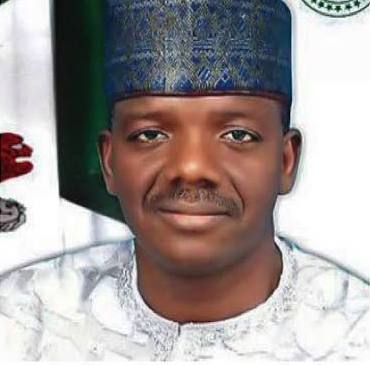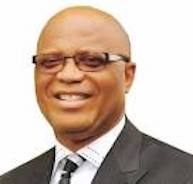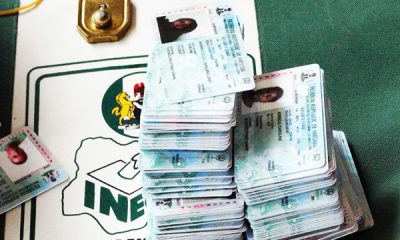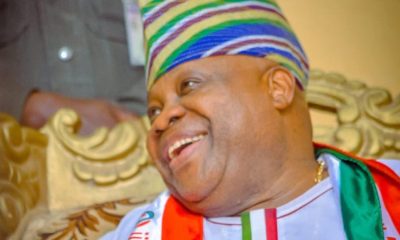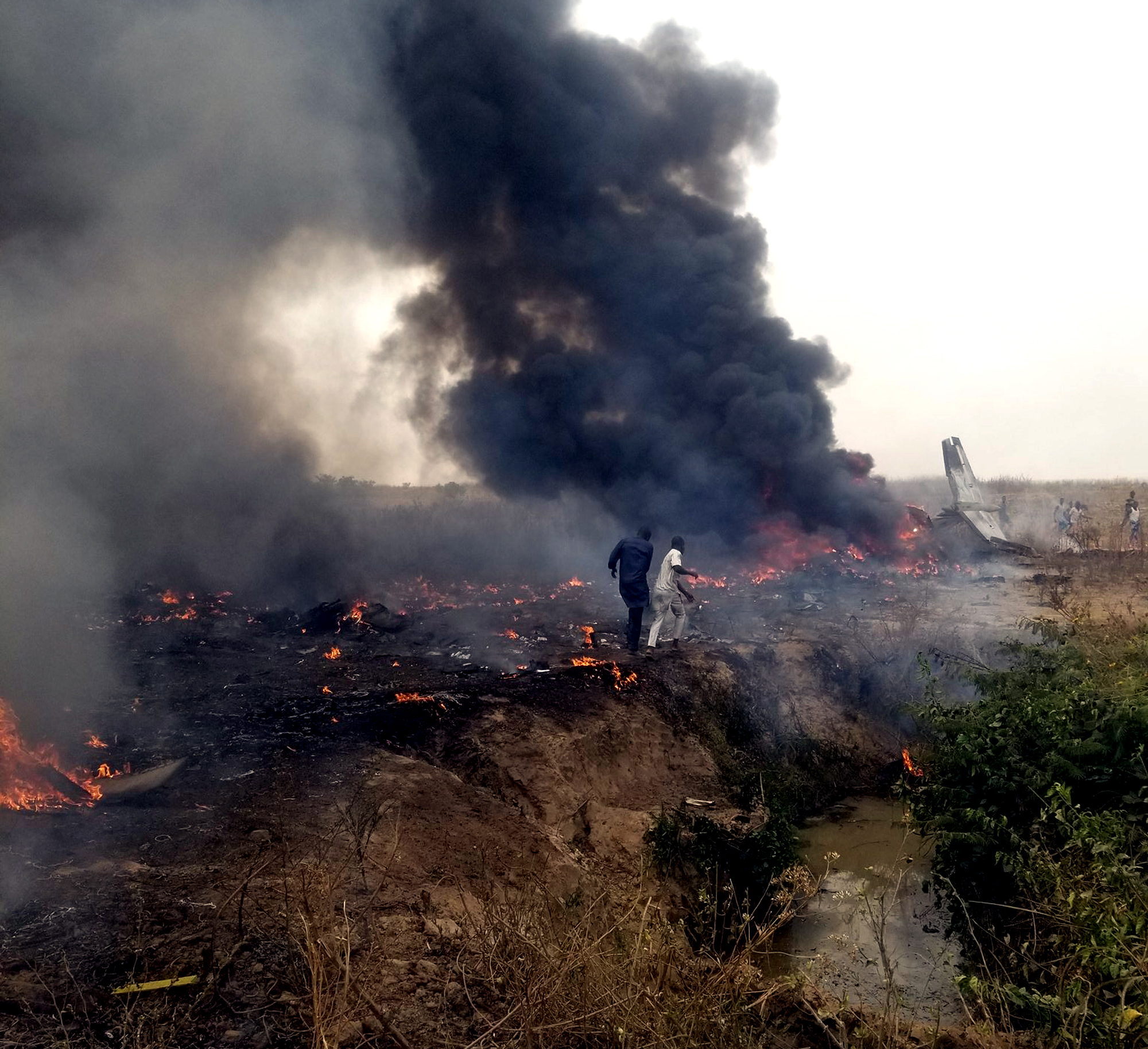BUSINESS
Trade Deficit with China Worsens with $23bn Imports in 2021

.Leads Chart of Continent’s Importers from the Asian Country
By Joseph Amah, Abuja Nigeria topped the chart among African countries importing from China in 2021 with imported goods valued at $23 billion (about N9.6trillion) or 16 percent of total continent’s imports from the Asian country.
Painfully, Nigeria did not feature on the chart of top five African countries in exports to China in the same period, as it recorded only $3 billion (about N1. 3trillion) exports in the year. These are captured in the data obtained from China’s Custom agency.Data from the National Bureau of Statistics (NBS) also shows the bilateral trade deficit against Nigeria is widening in favour of China, with a steady increase in Nigeria’s importation from the Asian country from 2019 to 2021.
The NBS data shows that Nigeria imported N6.53 trillion worth of goods from China in 9 months, January to September 2021, which is 14.8 percent higher than the N5.69 trillion worth of goods imported from the country in the whole of 2020, and 51.2 percent above total imports from the Asian country in 2019 valued at N4.32 trillion.With the nine months report already indicating significant outpacing of the preceding year’s full year figure it is projected that the full year 2021 figure would be about 40 per cent higher. Details of the NBS data revealed that the N6.53 trillion imports from China in the nine months ended September 2021 represents 29.75 percent of Nigeria’s total imports from all over the world valued at N21.95 trillion within the period. The value of goods imported from China in 2020 at N5.69 trillion was 29.1 percent of total imports from all over the world during the year (N19.55 trillion), but the full year percentage share of China imports in 2021 is expected to massively outpace 2020 level. This shows that despite the hard biting COVID-19, the 2020 imports from China, as a percentage of total imports, far outpaced 2019 levels which was 25.5 percent of the total. The 2019 total imports from all over the world was N16.96 trillion. However, further details of the NBS data for the nine months 2021 shows that exports from Nigeria to China was valued at N486.57 billion, N633.48 billion in full year 2020 and N595.99 billion in 2019, indicating huge export deficits during the period. Going by the prorated quarterly export figures the 2021 full year export figure is projected at N648 billion, just about 2.0 percent increase in exports compared to about 40 percent increase in imports. During the 30 month period spanning January 2019 to June 2021, Nigeria spent about N14.10 trillion on importations from China, representing more than 28 percent of total imports valued at N50.31 trillion into the country within the period.
Other origins of imports behind China during the period are the United States at N4.77 trillion or 9.48 percent, India N4.72 trillion or 9.38 percent, and The Netherlands at N4.07 trillion or 8.09 percent of total imports. Meanwhile, the data from China’s customs agency shows that the top five African countries that imported the most goods from China in 2021 were Nigeria $23 billion or 16 percent, South Africa $21 billion or 14 percent, Egypt $18 billion or 12 percent, Ghana $8 billion or 5 percent, and Kenya $7 billion. Their combined imports made up more than half of all imports of Chinese goods to Africa last year.
On the other hand, the top African exporters to China in 2021 were South Africa $33 billion or 31 percent of total exports to China from the continent, Angola $21 billion or 20 percent, the Democratic Republic of the Congo (DRC) $12 billion or 11 percent, Republic of Congo $5 billion or five percent and Zambia $4 billion or four percent. Their combined exports accounted for 71 percent of all exports to China last year, with Nigeria not featuring among the continent’s top five exporters to China. In terms of total trade volume (exports and imports), China’s top African trading partners in 2021 were South Africa at $54 billion representing 21 percent of all China-Africa trade, Nigeria $26 billion or 10 percent, Angola $23 billion or 9 percent, Egypt $19 billion or 8 percent, and DRC $14 billion or 6 percent. The combined value of trade between China and these countries accounted for more than half of all China-Africa trade last year. Africa’s main exports to China include minerals, metals, agricultural products, crude oil, and agricultural products.
Oil & Gas
NNPC Ltd. Records N5.8bn revenue, N748bn PAT in April

The Nigerian National Petroleum Company Limited (NNPC Ltd.) has announced a revenue of N5.89 billion and a Profit After Tax (PAT) of N748 billion for the month of April.
The NNPC Ltd. disclosed this in its Monthly Report Summary for April, released on Thursday.
The report highlights key statistics, including crude oil and condensate production, natural gas output, revenue, profit after tax and strategic initiatives during the period.
The report said that NNPC Ltd made statutory payments of N4.
22 billion between January and March.According to the report, crude oil and gas figures are provisional and reflect only NNPC Limited’s data.
It said that It excluded volumes of independent operators reported by the Nigerian Upstream Petroleum Regulatory Commission (NUPRC).
“Crude oil and condensate production averaged 1.606 million barrels per day (bpd) in April, while natural gas production was 7.354 million standard cubic feet daily.
“Petrol availability at the NNPC Ltd. retail stations recorded 54 per cent during the month under review, while upstream pipeline reliability was 97 per cent,” it said.
On its strategic efforts, it said that the company was collaborating with Venture Partners to accelerate Sustainable Production Enhancement.
It said that it completed the implementation of relevant presidential directives and Executive Orders for its upstream operations.
The report listed some Technical Interventions on Ajaokuta-Kaduna-Kano (AKK) pipeline and the Obiafu-Obrikom-Oben (OB3) gas pipelin to resolve challenges of River Niger crossings.
It said that the OB3 gas pipeline project was 95 per cent completed in the month, while the AKK pipeline was 70 per cent completed.
The report said that Turnaround Maintenance (TAM) was completed in several Oil Mining Leases (OML), including OML 18, OML 58, OML 118, and OML 133.
On Refineries Status, it said that the Port Harcourt Refinery Company (PHRC), as well as the Warri and Kaduna refineries were currently under review.
According to the report, all financial figures are provisional and unaudited, and all operational and financial data are for April unless indicated otherwise. (NAN)
Economy
Tinubu’s Democracy Speech Reflects Ambitious Vision – LCCI

The Lagos Chamber of Commerce and Industry (LCCI) says President Bola Tinubu’s Democracy Day speech reflects an ambitious and optimistic vision for Nigeria.
In a statement in Lagos on Thursday, the Director-General of LCCI, Dr Chinyere Almona, said the speech showed government’s appreciation of democracy, economic development, security and social cohesion.
Almona said that the President’s focus on economic growth, improving security, and increasing funding for education, healthcare, and infrastructure promised improved economic performance in the near future.
“We join all Nigerians to celebrate the peaceful transition and commitment to democratic values in the past 26 years.
“A stable political environment is very crucial for business success and for attracting investments.
“Government must stay committed to executing all its proposed programmes and ongoing reforms to ensure Nigerians reap the benefits of democracy without further delay,” she said.
The director-general also urged the government to ensure clear and consistent communication about economic reforms and policies to businesses and the general public.
This, she stated, would reduce uncertainty, build confidence and establish transparent mechanisms for tracking and reporting progress made through reforms.
Almona also called for targeted support for businesses to reduce their cost burdens relating to energy, logistics and regulatory compliance.
She said that LCCI recommended non-cash interventions that could ease the harsh production environment.
Almona also advocated expansion of social safety net programmes to support households affected by high living costs and inflation.
She also called for a more collaborative environment among government, businesses, the civil society and labour unions to ensure fair and timely negotiations on wages and working conditions.
She said that the government must implement programmes that would support strategic sectors pivotal to job creation, tax revenues and infrastructure development.
According to her, the oil and gas, power, and agriculture sectors require special attention as they offer catalytic support to the economy.
“As Nigeria reflects on the progress made and the path ahead, we urge government to remain steadfast about implementing all the required reforms toward a more sustainable and resilient economy.
“We call on government to work toward a nation built on the rule of law, justice and social cohesion even in our diversity and political sophistication,” she said. (NAN)
Economy
World Bank Cuts Global Growth Forecast to 2.3% for 2025

Global economic growth is projected to slow to 2.3 per cent in 2025 due to mounting trade tensions and persistent policy uncertainty, according to the World Bank’s latest Global Economic Prospects report.
A statement from the bank’s Online Media Briefing Centre on Tuesday noted that the new forecast was nearly half a percentage point lower than the rate projected at the beginning of the year.
The report indicated that the slowdown would mark the weakest non-recessionary global growth since 2008.
“The turmoil has resulted in growth forecasts being cut in nearly 70 per cent of all economies, across all regions and income groups,” the report states.
In spite of the gloomy outlook, a global recession is not anticipated. However, if current projections hold, average global growth in the first seven years of the 2020s would be the slowest of any decade since the 1960s.
Indermit Gill, the World Bank Group’s Chief Economist and Senior Vice-President for Development Economics, warned of deepening stagnation in the developing world.
“Outside of Asia, the developing world is becoming a development-free zone. It has been advertising itself for more than a decade,” he said.
Gill noted that growth in developing economies had declined steadily, from 6 per cent annually in the 2000s, to 5 per cent in the 2010s, and to under 4 per cent in the 2020s.
This trend mirrored the slowdown in global trade, which fell from an average of 5 per cent in the 2000s to under 3 per cent today. Investment growth had also weakened, while debt had surged to record levels.
The report projected that growth would slow in nearly 60 per cent of developing economies in 2025, averaging 3.8 per cent before a modest rise to 3.9 per cent in 2026 and 2027.
The report added that more than a full percentage point below the average of the 2010s.
“Growth in low-income countries is expected to reach 5.3 per cent in 2025, a 0.4 percentage point downgrade from earlier forecasts.
“Tariff hikes and tight labor markets are expected to keep global inflation elevated, with a projected average of 2.9 per cent in 2025, still above pre-pandemic levels.”
The World Bank warned that slowing growth would hinder efforts by developing economies to create jobs, reduce poverty, and close the income gap with advanced economies.
“Per capita income growth in these economies is forecast at 2.9 per cent in 2025, 1.1 percentage points below the 2000–2019 average.
“Assuming developing countries (excluding China) maintain a GDP growth rate of 4 per cent the forecast for 2027, it would take them about two decades to return to their pre-pandemic growth trajectory.”
Still, the report noted that global growth could rebound more quickly if major economies reduced trade tensions.
It said that resolving current disputes and halving tariffs could boost global growth by 0.2 percentage points over 2025 and 2026.
In response to rising protectionism, the World Bank urged developing economies to diversify trade, pursue strategic partnerships, and engage in regional agreements.
Given constrained public resources and growing development needs, policymakers are encouraged to mobilise domestic revenue, prioritise spending for the most vulnerable, and enhance fiscal management.
To drive sustainable growth, the report emphasised the need to improve business environments, expand productive employment, and align workforce skills with market demands.
Finally, it highlighted the importance of global cooperation in supporting the most vulnerable economies through multilateral initiatives, concessional financing, and targeted relief for countries affected by conflict.(NAN)





